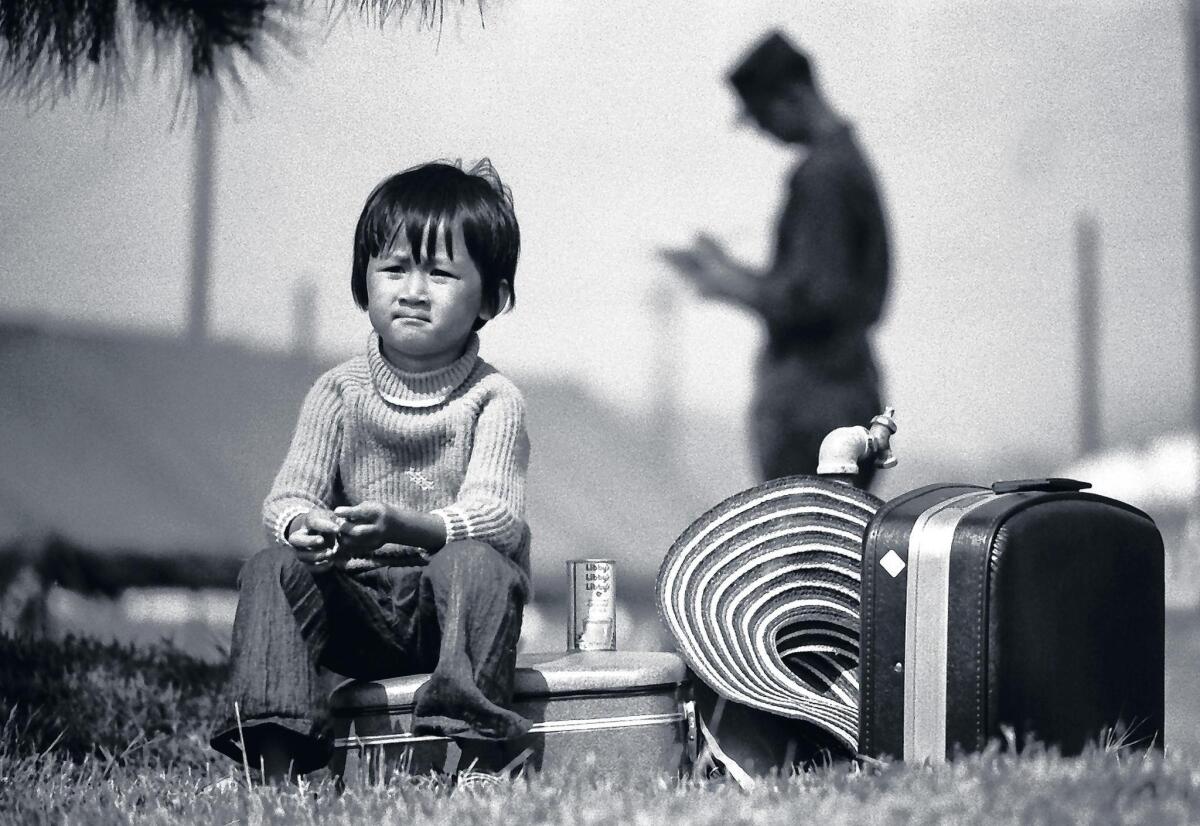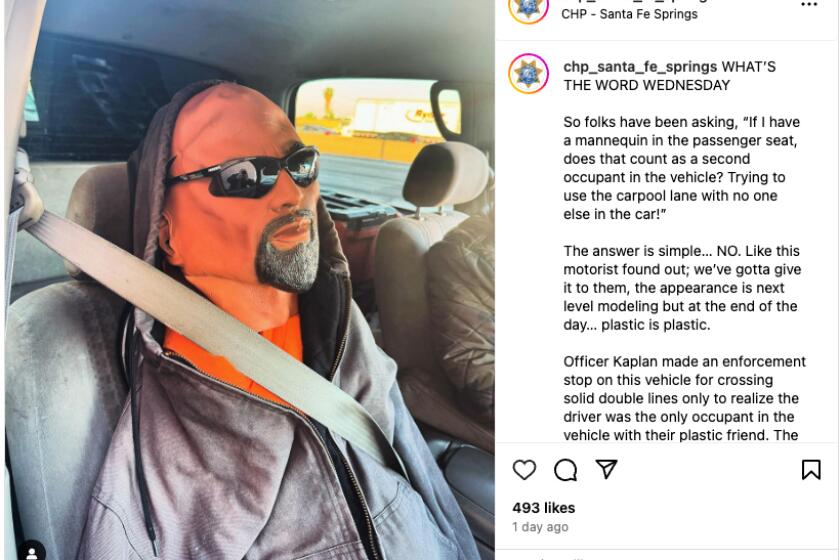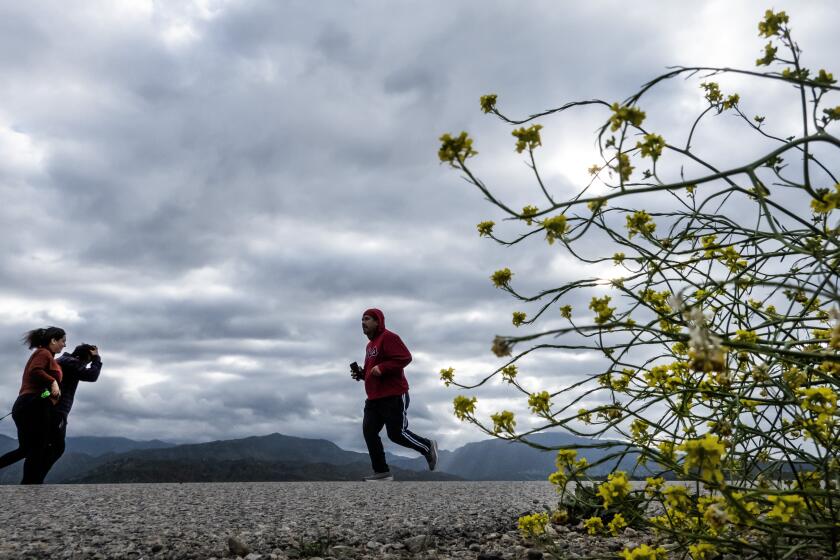Mental health literacy may be a roadblock for Vietnamese Americans seeking help, study shows
When Vi Pham was growing up in Orange County’s Little Saigon, she noticed there was no way to say “mental health” in Vietnamese.
“When we say ‘mental health,’ it’s usually associated with the word ‘crazy’ and we think of mental institutions,” said Pham, now a master’s student in counseling at Cal State Fullerton. “That’s why when people hear ‘mental health’ in my culture, they get scared. They think of it as something incurable, that the person is not normal.”
As a result, many older Vietnamese Americans — who decades later may continue to suffer from trauma related to the Vietnam War — don’t seek out mental health services, she said.
“If I have an issue, I have to deal with it myself or it has to be solved within the family,” Pham said. “Seeking outside help is not an option. If someone outside knows about our family issues, the family fears they’ll be looked down upon.”
According to a 2008 study from the UC Irvine Center for Health Care Policy, 21% of Vietnamese Americans report depression and anxiety, compared with 10% of whites. Meanwhile, only 20% of Vietnamese Americans have discussed mental health with a professional, compared with 45% of whites.
While this stigma has been the subject of extensive academic study, a new project out of Cal State Fullerton is investigating another reason Vietnamese Americans don’t seek help as much as others — mental health literacy. Pham is a research assistant for the project.
“The community doesn’t know what mental health is,” said Yuying Tsong, assistant professor at Cal State Fullerton and lead researcher on the study. “And if you don’t know what mental health is, why would you seek help, even if you’re showing symptoms of depression?”
The community doesn’t know what mental health is ... And if you don’t know what mental health is, why would you seek help, even if you’re showing symptoms of depression?
— Yuying Tsong, assistant professor at Cal State Fullerton
Tsong’s research, which is supported by a grant from UCLA, investigates this concept of mental health literacy through a series of in-depth interviews with older Vietnamese adults in Orange County.
To evaluate them, she reads a short story — in Vietnamese — describing another person’s depression symptoms, like withdrawal from social activities, then assesses whether the interviewee can identify them.
“For example, we’ll tell them that this grandpa used to like gardening a lot, and he used to socialize and play Chinese chess with his friends in the park,” Tsong said. “But in the last two weeks, he hasn’t gone out. His friends call him, and he says, ‘I’m too tired.’ Even when his grandchildren call, he says, ‘I don’t want to go out.’
“Then we ask the interviewee what he thinks happened and what this person should do.”
Tsong’s research doesn’t focus exclusively on Vietnamese war refugees — her interview subjects were screened by age, not life experience — but Orange County is home to the largest Vietnamese American population in the United States, having developed as people fled Vietnam as a result of the war.

A young Vietnamese boy sits on a suitcase while his family is being processed into the Camp Talega refugee center at Camp Pendleton in 1975.
Before premanently resettling in areas such as Garden Grove and Westminster, many refugees had first been taken to reception camps in the Philippines and Guam, and later to temporary housing at U.S. Army bases in the United States, including Camp Pendleton, in San Diego County. Over the course of this journey, many died, families were separated and wealth was lost. Survivors then faced the challenge of starting all over in a new country and learning a new language and culture.
This history is one reason why rates of mental health issues such as post-traumatic stress disorder, depression and anxiety are higher among Vietnamese Americans than other Asians, such as Indians, who typically emigrated for professional reasons, not because of war, Tsong said.
This disparity can’t help but serve as a backdrop to Tsong’s research.
Although Tsong hasn’t completed her interviews yet — she’s done 24 out of about 30 she has planned — she sees clear patterns in the results.
“The recognition of depression symptoms are fairly low,” she said. “A lot of times they believe that if the person were to just go out in their social life more, visit family more or exercise more, they’ll be better. This explains why our community is not seeking help. If you don’t recognize that these behaviors are really about depression, you’re not going to seek the appropriate professionals.”
Another trend is attributing depression symptoms to old age.
“Aging doesn’t mean you have to be depressed,” Tsong said. “But if older adults see aging as being old and sad, of course they’re not going to get treatment.”
Thanh Do, program director for behavioral health at the Nhan Hoa Comprehensive Healthcare Clinic in Garden Grove, agrees that lack of knowledge about mental health is one of the primary barriers for treatment in the local Vietnamese American community.
One common misperception, he explained, is the “morality view” of mental health, that mental health is a reflection of a person’s character.
“They think that if they have a mental health problem, it means their family is not so good,” he said. “That’s why we try to explain it to them in the medical view, that mental health problems are the same as other medical problems.”
Another barrier to treatment is language.
About 90% of Vietnamese American seniors in Orange County have limited English proficiency, according to Tsong, and 40% of local Vietnamese American households are linguistically isolated, meaning that every family member over the age of 14 has limited English proficiency.
“Even if they can recognize that a person may be depressed, it’s going to be difficult for them to find a mental health professional who will be able to deliver services in the language that’s appropriate for them,” Tsong said.
But over the course of his 20-year career in mental health services, Do said he’s seen a noticeable change in Vietnamese Americans’ willingness — and ability — to get help.
Mainstream services now have more Vietnamese language speakers, and clinics such as Nhan Hoa that cater specifically to the Vietnamese community have emerged throughout the county. Other groups include Viet-Care and the Orange County Assn. for Vietnamese Mental Health Awareness and Support.
In addition, Do said, mental health is being discussed more frequently on television and radio, which has led to a greater awareness and desire to seek help, and an increasing number of younger Vietnamese Americans are entering the fields of social work, psychology and counseling with the specific goal of serving their own community.
“The more people learn about mental illness,” he said, “the more they’ll get treatment.”
Tsong hopes that her research will also lead to change.
Using her results, Tsong will design a pilot intervention program aimed at improving the mental health literacy of older Vietnamese American adults, something that will have implications for the entire community, she said.
If the older generation understands mental health, she explained, they’ll also be more supportive when the younger generation seeks help.
“If we could increase the mental health literacy of older adults, we can increase the entire family’s views about mental health,” Tsong said.
Research assistant Pham agreed.
“If our older generation keeps telling the younger generation that there’s stigma, don’t go to counseling, it’s useless. Of course young people are going to look at it like it’s not necessary,” she said. “But if older people are doing it, then it shows people of all ages that they can benefit.”
--
Caitlin Yoshiko Kandil, caitlin.kandil@latimes.com
More to Read
Start your day right
Sign up for Essential California for news, features and recommendations from the L.A. Times and beyond in your inbox six days a week.
You may occasionally receive promotional content from the Los Angeles Times.







